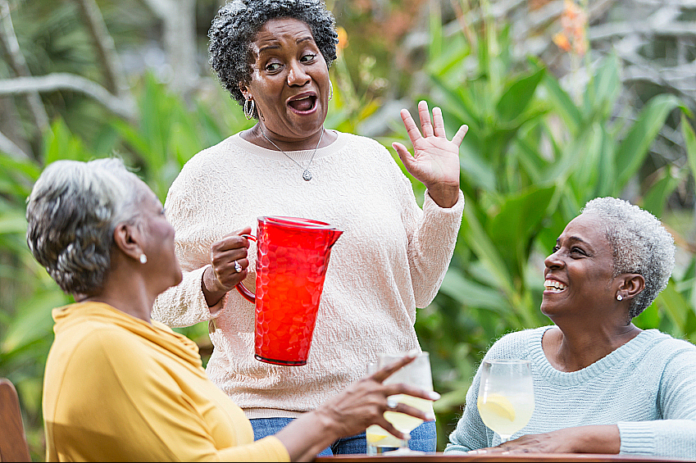Most of us have had our core group of close friends for eons now. Some friendships even go as far back as childhood. We can all agree that there’s no single template for friendship. Some people are in our lives because they carry a precious shard of our history, while others reflect our passions and priorities for right now.
Let’s keep it real, as we age, there is little tolerance for nonsense. Sometimes friendships simply wither or fade as two people grow and change—it doesn’t have to be someone’s fault. Once you’re aware of that, without being cruel or feeling guilt-ridden, you can begin to let go of relationships that no longer nourish you. The bottom line…don’t let a friendship continuously drain you! Don’t keep mediocre friendships going—out of a sense of loyalty, fear, or guilt.
Here’s how to pull the plug on a friendship:
Conversation is always best
Put on your big girl or big boy drawers and ask your friend to meet with you in person to discuss the feelings you’re having about the relationship. Don’t play games, let them know beforehand what you intend to address during your meeting so that they too can prepare for the conversation. Address your friend respectfully and compassionately.
According to Malika Bhowmik, a New York City–based mental health psychotherapist (LMHC), begin sharing your thoughts with your friend on a positive note. “Share, first, how much this person has meant to you and why it is so heartbreaking or difficult to have arrived at a decision where it doesn’t make sense to sustain a friendship moving forward. It should be both parts a celebration of the friendship as it was, the connection that once was, the bond that had occurred and felt worth sustaining for whatever amount of time, and acknowledging that there’ve been ruptures or differences that could not be aligned or reconciled,” says Bhowmik.
Make the breakup about you and your needs, not about their shortcomings.
Take some accountability for the friendship’s demise and do allow the other party to speak their mind as well. Listen to how they feel you’ve hurt them in one way or another. A positive, constructive, give-and-take flow is healing for them and for you as well. Let your friend know how you only wish them well and that you still care but can’t see past the differences.
The slow-fade method
If you prefer not going the face-to-face-route, try letting the friendship fade into black. Stop spending time with your friend, don’t contact them, stop getting into details during conversations so that the talks are short, and fade out the emails. These days the final step in the slow-fade is often when you Unfriend or Unfollow them on your social media accounts. According to relationship experts, the slow-fade only works if it’s a mutual dance. This approach doesn’t work as well when you’ve known your friend for years and they quickly figure out what you are up to. Also, if the friendship is longstanding you likely feel you owe it to them to give them a proper send off.
Take a time out
Taking a break from a friendship can give you time to breathe, offer a fresh perspective, and allow you to reevaluate the situation more objectively. A break might even make you miss your friend. If you still value the friendship and don’t want it to end, you need to tell that to your friend so that they do not think the break is permanent. Do be honest and let your friend know that you need time to think about the direction in which the relationship will go. If your friend cares about the friendship then they will respect the boundaries that you have set. If you intend to keep the friendship, schedule a meeting time in a month or two in advance. Absolutely do not disappear without a trace!
Experts state that it is normal to mourn the end of a friendship especially if it was a long one. Subtracting a friend from your life can be draining and stressful. Do keep in mind that good friends play a starring role in some of our most precious memories. They are supposed to enrich our lives in profound and meaningful ways. According to some studies, friendships can even improve our health and extend our lives. Bottom line, good relationships with folks we care about help make our mountains look more like molehills and if they don’t, it’s time for them to go!











